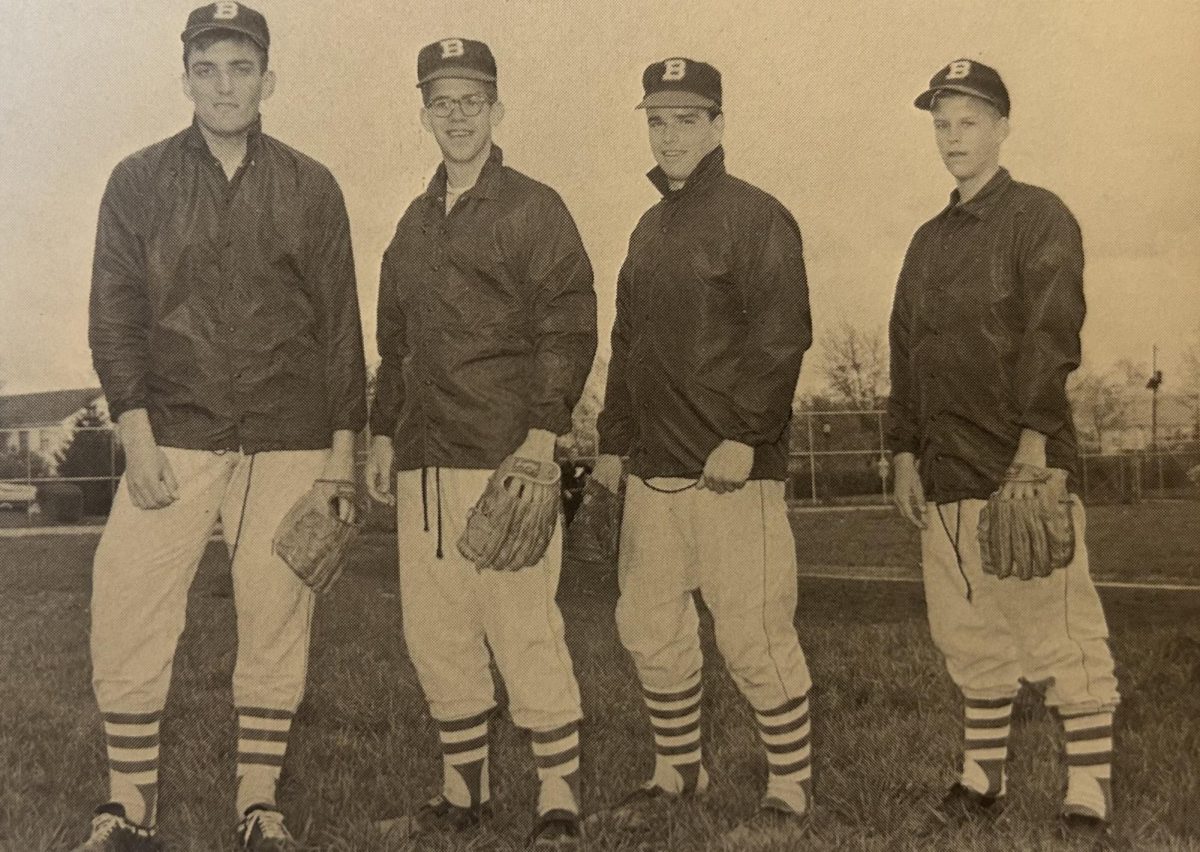For many people, throwing a plastic bottle into a recycling bin is nothing more than a habit. For others, however, it’s a way to save the earth.
Some teachers and students have been making an effort to become more environmentally conscious and “go green.”
Junior Leah Apothaker said she does little things on a day-to-day basis to be more environmentally friendly.
“I try to recycle, given the opportunity, and my mom has a [hybrid] Prius and my grandparents have a hybrid Civic,” Apothaker said. “When I drive, I try to drive those cars.”
Junior Jenna Bauer also changed her routine to try to be green.
“I changed my own lifestyle, but I don’t want to push my own opinion on what other people do,” Bauer said. “I don’t want to bother people who use too many paper towels. Rather than tell them how unnecessary it is, I change what I do to counteract it.”
Bauer said some of the changes she made were to recycle more, take shorter showers and walk instead of driving whenever possible.
“Those are all small adjustments in the everyday things we do,” Bauer said.
Senior Angie McDonald said she agrees with Bauer and has also taken steps to change her lifestyle.
“I always shut off the power in my room before I leave to avoid wasting electricity, and I try to carpool,” McDonald said.
She added she recycles often and tries to buy products in cardboard packaging instead of plastic.
Though some students take steps to go green outside of school, junior Sam Brock has individually tried to make the school more environmentally friendly.
Since the school does not offer a way to recycle plastic and metal, he turned locker 1328, which is across from the library, into a drop-off for empty bottles and cans.
Brock said that the idea came to him by accident.
“One day I came to my locker and someone had moved my locker sign,” Brock said. “I opened the wrong locker and it was completely empty. I had an empty can and a light bulb went off. I figured I’d put the can in there and take it home later.”
Brock’s goal is to take home a garbage bag full of bottles each day and to expand his operation.
“I wish I had a locker on the second and third floors for people to use,” Brock said.
His biggest goal, however, is for the school to take over recycling.
“If people are given the choice to recycle or throw something away, they’ll recycle,” Brock said. “But most people won’t go out of their way to recycle. All students see are trash cans. There really needs to be recycling in every room.”
Though students like Brock are making an extra effort, McDonald stressed that everyone can do small things to help the environment.
“I think every student can take little steps to be environmentally friendly,” McDonald said. “If you drive to school and live near another student, there’s no reason not to carpool.”
Apothaker said that the nature of ecological change makes it hard for people to notice.
“I think students aren’t concerned because people are used to the environment in the poor state it’s in,” Apothaker said. “Environmental change happens on such a slow scale that it’s hard to concretely see the damage.”
She also said, however, that there are ways for students to learn about the problems our planet is facing.
“I plan on taking AP Environmental Science next year, and I hope that class can help educate students,” Apothaker said.
Students aren’t the only ones trying to help save the environment. Science teacher and Environmental Club advisor Scott Logsdon said he tries to be as green as possible.
“We sort our trash,” Logsdon said. “We buy [re-usable] grocery bags instead of [plastic] sacks. I have a rain-catchment device on my shed that self-waters my garden.”
Logsdon said while he would like a hybrid, they are too expensive.
“I wish hybrids were more attainable for more people,” Logsdon said.
McDonald agreed that money is an issue for if you want to go green.
“Many factors contribute to being green,” McDonald said. “It costs more money. Not all high school students can afford to shop at an environmentally friendly store or buy a Prius.”
Business teacher Chris Maisenbacher said he found a way to save money and go green, converting his car so that it runs on biodiesel instead of typical diesel fuel.
“Biodiesel is taking vegetable oil and converting it to a diesel fuel,” Maisenbacher said.
He said he gets used oil from restaurants near his house. He filters it and puts it through a chemical process so his car can run on the oil.
“It’s safer, it’s better for the environment,” Maisenbacher said. “I get the oil for free, and it costs me about 60 cents a gallon to make [the biodiesel], so I save money.”
Maisenbacher also said that anyone with a car that runs on diesel can convert it to run on vegetable oil, adding that there are do-it-yourself kits for sale.
For those who are not mechanically inclined, Logsdon said that everyone can do things to better the environment.
“Using less power would be good,” Logsdon said. “If people would just stop buying needless things and survive on less stuff it would create less waste.”
Bauer agreed that we have the power to save the environment.
“You can do little things that make a big difference,” she said.
Published March 2008. Digitized 2025.
















